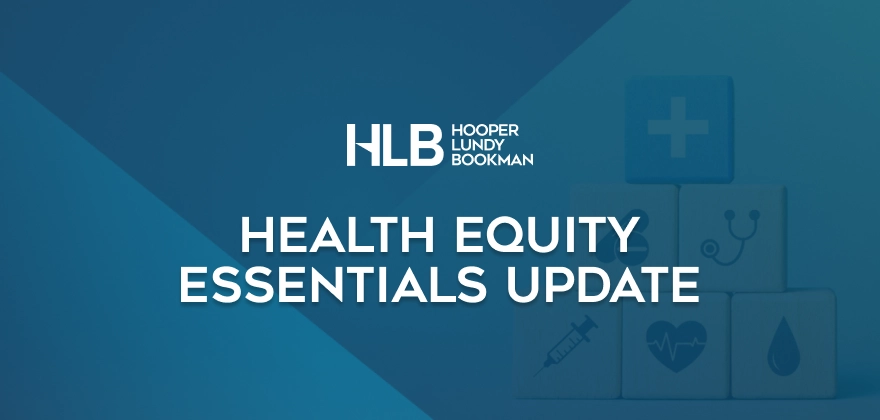
On behalf of HLB’s Health Equity Task Force, here is our most recent Health Equity Essentials – Advancements & Developments update.
HRSA ANNOUNCED A NEW ENHANCING MATERNAL HEALTH INITIATIVE
In late January, HRSA announced a new Enhancing Maternal Health Initiative, which will further HRSA’s maternal health work to address maternal mortality and maternal health disparities. The program will be operated in conjunction with state and local health officials, community organizations, and others. HRSA believes the initiative will maximize its investment and impact in maternal health for communities identified as “high need,” including areas in AZ, AL, GA, IL, KY, MD, MI, MO, MT, NC, OR, and DC.
AHA RELEASED A GUIDE FOR BOARDS OF HEALTH CARE ORGANIZATIONS TO IDENTIFY WAYS TO ADDRESS HEALTH CARE EQUITY
Also in January, AHA released a guide for boards of health care organizations to identify ways to address health care equity. Among its recommendations are accountability; boards must hold themselves and their executives accountable for prioritizing health care equity and ensuring that it becomes integral to the organization’s culture. Ensuring diversity in the board’s composition and connecting with members of the community and responding to their concerns and needs are also key. Additionally, in an era of spiraling health care costs, AHA recommends that boards champion financial resiliency and long-term investments in their communities besieged with health care inequities.
CMS ANNOUNCED ITS NEW INNOVATION IN BEHAVIORAL HEALTH (IBH) MODEL
In recognition that Medicare and Medicaid populations experience disproportionately higher rates of mental health conditions and substance use disorder, on January 18, CMS announced its new Innovation in Behavioral Health (IBH) Model. It aims to improve quality of care and behavioral and physical health outcomes for these populations by delivering person-centered, integrated care through participating treatment programs, safety net providers, and public or private practices on an outpatient basis.
EARLIER THIS MONTH, SAMHSA AND THE ONC ANNOUNCED THE BEHAVIORAL HEALTH INFORMATION TECHNOLOGY (BHIT) INITIATIVE
Earlier this month, SAMHSA and the ONC announced the Behavioral Health Information Technology (BHIT) Initiative, which will invest >$20 million to advance health care IT use in behavioral health care settings. Lack of access to health care IT and the higher-level efficiencies and capabilities it offers, such as coordinated care planning and patient/provider access to records, inhibit mental health providers’ from providing access to needed treatment modalities, including telehealth. The initiative will address these challenges by identifying and piloting a set of behavioral health-specific data elements with certain SAMHSA grantees.
CMS IS CURRENTLY ACCEPTING NOMINATIONS UNTIL MARCH 13 FOR ITS 2024 HEALTH EQUITY AWARD
CMS is currently accepting nominations until March 13 for its 2024 Health Equity Award. The award recognizes organizations that are working to advance health equity, and demonstrating for others how they too can reduce disparities in health care access, quality, and outcomes.
Professional
If you have any questions, please reach out to Alicia Macklin, Sandi Krul, Monica Massaro, Kerry Sakimoto, or your usual HLB Contact.



